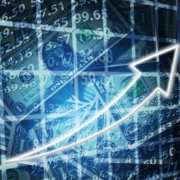In Europe and Breaking the Bank
 My mother and I were checking out of our hotel in the old city of Vienna when the receptionist behind the desk asked me if I wanted to pay in euros or dollars. I handed her my Visa and said I would pay in euros, since seeing the inflated price in dollars would only depress me. The woman agreed and handed me a bill for 330 euros. Knowing quite well that I had just spent about $600, I signed the bill quickly and pushed the amount out of my head.
My mother and I were checking out of our hotel in the old city of Vienna when the receptionist behind the desk asked me if I wanted to pay in euros or dollars. I handed her my Visa and said I would pay in euros, since seeing the inflated price in dollars would only depress me. The woman agreed and handed me a bill for 330 euros. Knowing quite well that I had just spent about $600, I signed the bill quickly and pushed the amount out of my head.
It has been about seven years since I was last in Europe and the differences were starkly apparent to me. The most obvious difference is the number of euros I can buy with a dollar. Back when I was studying about in Florence in 2001, I walked into the Prada outlet and felt I was getting a bargain. The euro had just been launched and the exchange rate was 1 euro to $0.88. Currently, 1 euro equals $1.54. Ouch! The situation is depressing because everything is so expensive, but it’s also scary because it’s a symptom of the broader economic problems facing the U.S.
We were at a restaurant in Berlin last week and since my mom is a weight watcher we shared a sandwich, ordered two sodas and two bananas. I needed a little something sweet so at the last minute, I added a chocolate bar. I was shocked to see that the bill was upwards of $35. I didn’t even bother to share the calculation with my mom, who would have just told me to put the dessert back.
Being in Europe really brings a new perspective to the current state of the U.S. markets. In the last few months, as the American economy has struggled in the wake of the subprime mortgage crisis and the widening capital markets crunch, my morning newspaper was filled each day with articles about sovereign wealth funds bailing out major financial institutions in the States. While I was in Europe, I learned about the Bear Stearns collapse.
The Europeans are deeply concerned about the impact of the American economic problems on their markets as well. In European papers, U.S. Federal Reserve Chairman Ben Bernanke gets as much press as Britney Spears in American gossip magazines (and the public is equally obsessed with analyzing what must go on in his head). In a global economy, the whole world waits to see if the Federal Reserve will cut interest rates again or if Lehman Brothers’ fourth quarter earnings will spur rumors of that bank’s demise.
Before I left home last week, I was clearly aware that America’s economy was in deep trouble, but that feeling was compounded when I got a taste of my reduced buying power in Europe. Back in the US, I’m lucky that I still have the same job, I don’t hold most of my assets in stock, and I fortunately don’t have a subprime mortgage. So, I’ve felt relatively insulated from the recent market shocks. Mostly, I move through my daily routine paying for my Starbucks coffee with the same green dollar bills that I have always used. Aside from what I hear on the news, I haven’t felt the crunch too much in my personal finances.
I’m not that different from most Chicagoans, who hear “bear” and think of quarterback Rex Grossman and Bears coach Lovie Smith, not a looming recession. But, times are changing. Real estate prices are dropping, gas prices are rising, people who work in the financial industry fear layoffs, and anyone heavily invested in the market has a whole new understanding of hard times. But unless you are one of the 22,000 people that lost their jobs in January or the 63,000 people in February that have became unemployed, according to the International Herald Tribune, you might not see the extent of the mess our markets are in.
As I was preparing for this trip to Europe, I promised friends I would come back with souvenirs. I was thinking key chains or scarves but as I soon learned, a small keychain with a picture of Mozart on it costs the equivalent of $8 and that strikes me as ridiculous on principle. My problem now is bringing something back for my friends that will be a meaningful reminder of my trip but, when purchased with my wimpy U.S. dollars, won’t break the bank.



